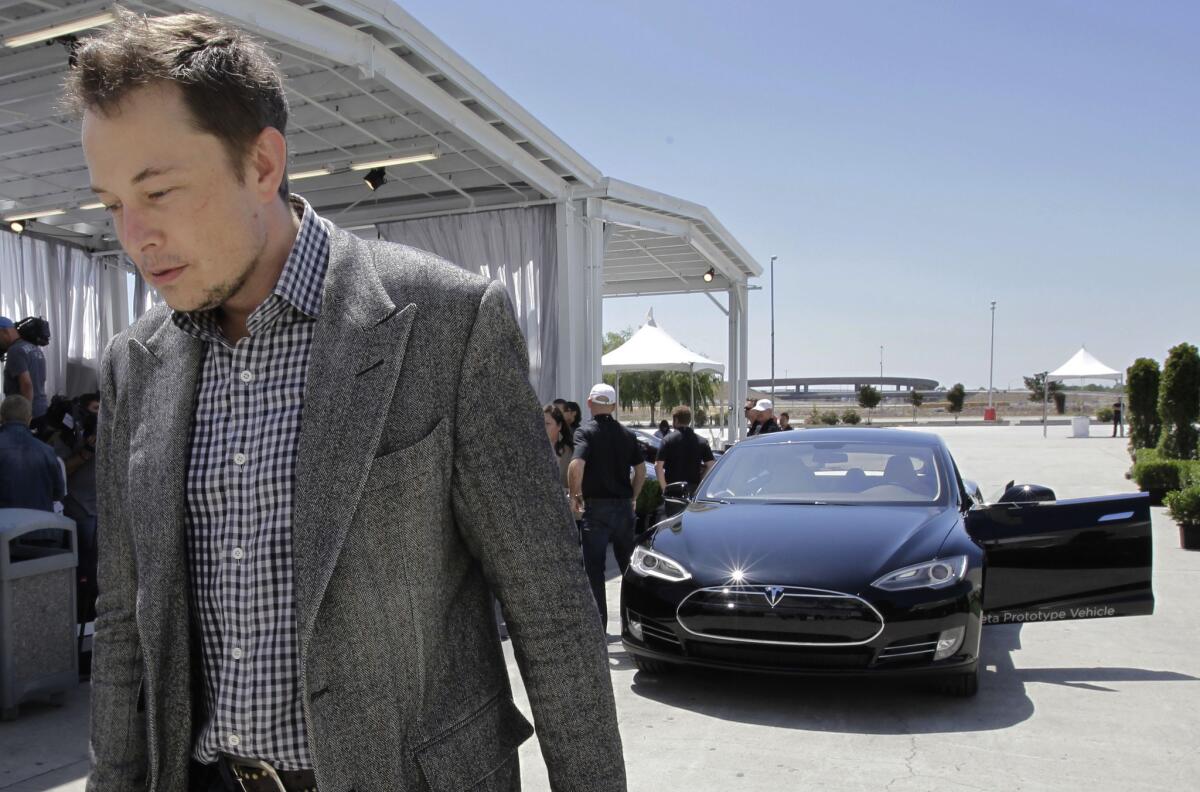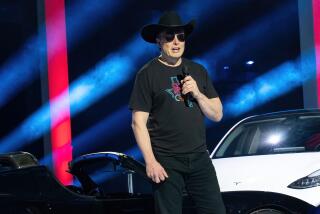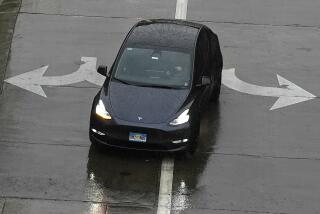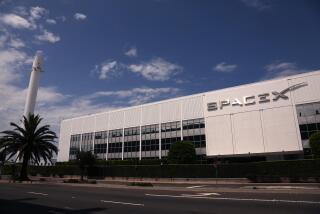Opinion: Gigadollars in tax breaks not enough lure new Tesla factory

It was nice while it lasted. Not.
California’s desperate pursuit of Tesla’s multibillion-dollar “gigafactory” appeared to come up empty Wednesday after CNBC reported that the manufacturer of pricey electric cars would build its new battery plant in Nevada. The official word is expected Thursday, accompanied by an avalanche of stories exploring how California drives off employers with its toxic business climate.
Assuming the reports are correct, Nevada will be gaining up to 6,500 jobs the factory was expected to create over the coming five years. Those are expected to be good jobs too, in the comparatively high-paying fields of construction and manufacturing. There’s also the likelihood that the mammoth factory will become the hub of a cluster of companies involved in the development and use of new battery technologies.
In short, it’s the kind of investment that causes business-development officials to drool uncontrollably, leading state and local officials to offer extravagant tax and regulatory concessions. In California’s case, that meant offering millions of dollars worth of tax credits from its California Competes kitty to help offset the state’s high energy costs and expedited court review of its environmental impact report.
Negotiators for the Brown administration couldn’t reach a deal with Tesla before the Legislature closed up shop over the weekend, but some top lawmakers believed they would still have time to approve an incentive package when they returned in December. Then again, maybe not.
We can debate whether states should make the sort of concessions that Tesla and its ilk demand. The conservative Tax Foundation, among others, is skeptical about the tax breaks, in part because governments often hand them out without evaluating their effectiveness. The special-favors arms race has become so widespread that almost every state now offers tax credits for jobs created, investments made and R&D dollars spent, the foundation noted.
There’s also something unseemly about the government doling out favors to some companies but not others. Why should a company that’s eager to locate in California face a larger tax or regulatory burden than one that has to be persuaded to set up shop here? The sense of impropriety grows when favors are bestowed selectively within a competitive industry -- like, say, automobile manufacturing.
Yet there’s little solace in standing on principle when a) no one else is, and b) California’s cost of doing business is so high. As The Times’ editorial board noted last week, there’s no small irony in Tesla -- a company that holds itself out as an answer to global warming -- seeking relief from costs related to the state’s renewable energy mandate, as well as from California’s signature environmental law. But those are real costs that make the state less competitive. And Tesla is a publicly owned company, not a charity.
Oh and yes, Nevada has no corporate or personal income tax. In fact, it’s the only one of the five states Tesla considered with that particular distinction. Nevertheless, Nevada evidently had to promise Tesla additional financial incentives to seal the deal.
State lawmakers can console themselves with the thought that they will not be doling out gigadollars worth of new tax credits to Tesla, on top of the ones it already extends the company and the purchasers of its cars. Maybe that will make more palatable the $330 million in annual tax credits that Hollywood extracted from the Legislature and Gov. Jerry Brown last week, a sum more than three times the state’s previous spending on film incentives. The big boost in aid to Hollywood is particularly galling when you consider that other states are starting to resist Hollywood’s demands for special favors, and that numerous studies show how little states have gotten in return for their investment.
But again, many companies have a lot of flexibility to choose where to build or expand. And the politically savvy ones know that as long as California’s unemployment rate is elevated, they have a lot of leverage. Nor is that a secret to state lawmakers and the Brown administration, who find it easier to offer special breaks to individual companies than to try making California less costly for all employers.
The latter would be extraordinarily difficult, considering that much of the added cost of doing business here stems from high property values, popular environmental rules and the demands of a large population. Besides, the state continues to attract entrepreneurs and tech companies, and businesses are creating jobs here at a faster clip than in almost any other state.
Is that enough to push the state back to full employment and eventually reinvigorate its economy? Probably so. But it wasn’t enough, apparently, to attract a gigafactory.
Follow Healey’s intermittent Twitter feed: @jcahealey
More to Read
A cure for the common opinion
Get thought-provoking perspectives with our weekly newsletter.
You may occasionally receive promotional content from the Los Angeles Times.











